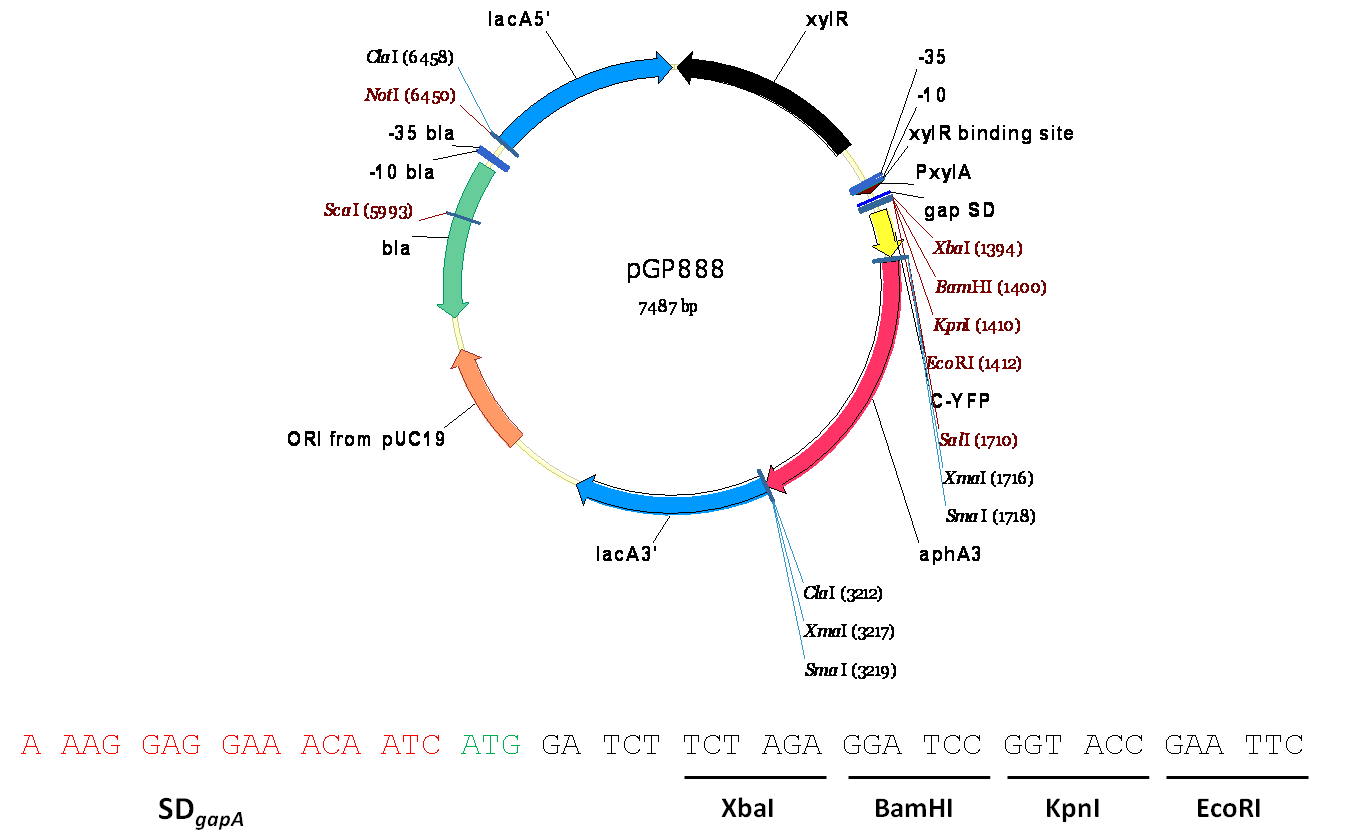Difference between revisions of "PGP888"
(Created page with "250px|thumb|right|'''pGP888: click to enlarge''' The vector was constructed in the Stülke lab and it is suitable for the xylose-inducible expression of ...") |
|||
| (5 intermediate revisions by 2 users not shown) | |||
| Line 1: | Line 1: | ||
| − | [[File: | + | [[File:pGP888.png|250px|thumb|right|'''pGP888: click to enlarge''']] |
| − | The vector was constructed in | + | The vector was constructed in [[Jörg Stülke]]'s lab and it is suitable for the xylose-inducible expression of proteins in ''B. subtilis''. The plasmid confers resistance to ampicillin and kanamycin in ''E. coli'' and ''B. subtilis'', respectively. To transform ''B. subtilis'', the plasmid has to be linearized with ScaI or NotI. The plasmid will integrate into the ''[[ganA]]'' gene. |
| Line 8: | Line 8: | ||
*Don't forget a stop codon in the reverse primer. | *Don't forget a stop codon in the reverse primer. | ||
| − | + | == The reference == | |
| − | + | <pubmed>21856853 </pubmed> | |
| − | + | == Return to [[Plasmids]] == | |
| − | <pubmed>21856853</pubmed> | ||
Latest revision as of 13:59, 3 June 2013
The vector was constructed in Jörg Stülke's lab and it is suitable for the xylose-inducible expression of proteins in B. subtilis. The plasmid confers resistance to ampicillin and kanamycin in E. coli and B. subtilis, respectively. To transform B. subtilis, the plasmid has to be linearized with ScaI or NotI. The plasmid will integrate into the ganA gene.
Hints for usage
- An additional base has to be inserted in the forward primer to restore the frame.
- Don't forget a stop codon in the reverse primer.
The reference
Christine Diethmaier, Nico Pietack, Katrin Gunka, Christoph Wrede, Martin Lehnik-Habrink, Christina Herzberg, Sebastian Hübner, Jörg Stülke
A novel factor controlling bistability in Bacillus subtilis: the YmdB protein affects flagellin expression and biofilm formation.
J Bacteriol: 2011, 193(21);5997-6007
[PubMed:21856853]
[WorldCat.org]
[DOI]
(I p)
